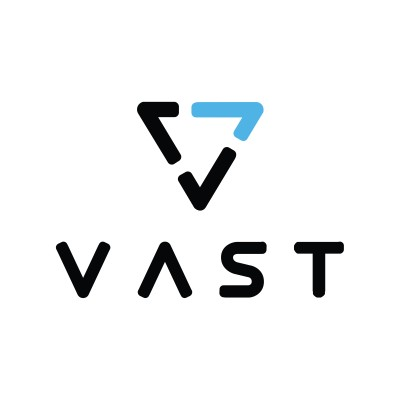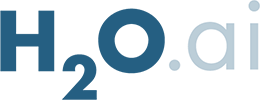The Rise of Agentic AI: Transforming Business Landscapes
March 18, 2025, 4:05 am

Location: United States, New York
Employees: 201-500
Founded date: 2016
Total raised: $381M

Location: United States, California, Mountain View
Employees: 201-500
Founded date: 2012
Total raised: $332.5M
In the fast-paced world of technology, change is the only constant. The latest wave of innovation is driven by agentic AI. This new breed of artificial intelligence is not just a tool; it’s a partner in the digital landscape. Two recent announcements highlight this shift: Tray.ai's acquisition of Vanti and Solo.io's launch of the Kagent framework. Both represent significant strides in making AI more adaptive and integrated into business operations.
Tray.ai is a player in the integration platform arena. They recently acquired Vanti, a company known for its knowledge modeling technology. This acquisition is more than a business move; it’s a strategic leap into the future of AI. With Vanti’s expertise, Tray.ai aims to create AI agents that learn and adapt in real time. These agents will not just execute tasks; they will refine their reasoning and decision-making abilities. Imagine a workforce that evolves with every interaction, continuously improving its performance. That’s the promise of this acquisition.
The core of this transformation lies in knowledge modeling. Traditional AI systems often struggle to adapt to changing environments. They are like ships anchored in a harbor, unable to navigate the open sea. Vanti’s technology allows AI agents to ingest and structure information quickly. This capability is crucial for businesses that operate in dynamic markets. The ability to adapt and learn is no longer a luxury; it’s a necessity.
On the other side of the spectrum, Solo.io has introduced Kagent, an open-source framework designed for Kubernetes. This framework is a game-changer for DevOps and platform engineers. It simplifies the process of building and running AI agents in cloud-native environments. Kagent provides a catalog of tools and resources, allowing teams to automate tasks like configuration and troubleshooting. It’s like giving engineers a toolbox filled with the latest gadgets to streamline their work.
Kagent’s architecture is built on the Model Context Protocol (MCP). This standard allows for seamless integration with existing cloud-native tools. It’s a flexible system that reduces the learning curve for teams. Instead of grappling with complex infrastructures, engineers can focus on higher-value tasks. Kagent empowers teams to offload the heavy lifting to AI agents, freeing them to innovate.
The rise of agentic AI is not just about efficiency; it’s about transformation. Businesses are no longer just adopting AI; they are integrating it into their core operations. The agents created through these frameworks can handle complex, multi-step problems. They can analyze results and continuously improve outcomes. This level of sophistication is akin to having a skilled assistant who learns from every task and interaction.
Consider the implications for customer service. AI agents can now handle inquiries, refine responses, and escalate issues based on evolving interactions. In sales and marketing, agents can optimize outreach and adjust messaging in real time. This adaptability is crucial in a world where customer preferences shift like sand.
The benefits of these advancements are tangible. Companies leveraging Tray.ai’s Merlin Agent Builder are already seeing improvements in their operations. The ability to create agents that continuously learn and adapt is a significant advantage. It allows businesses to stay ahead of the curve, responding to changes in the market with agility.
However, the journey is not without challenges. As businesses embrace these technologies, they must also consider security and ethical implications. The more autonomous these agents become, the more critical it is to ensure they operate within safe parameters. Organizations must establish guardrails to protect sensitive data and maintain customer trust.
The landscape of AI is evolving rapidly. The combination of Tray.ai’s knowledge modeling and Solo.io’s Kagent framework is a powerful one. Together, they represent a shift towards more intelligent, adaptable systems. These systems are not just tools; they are integral to the future of business operations.
As we look ahead, the potential for agentic AI is vast. The ability to create agents that understand context and adapt to changing conditions will redefine industries. From manufacturing to customer service, the applications are limitless. Businesses that embrace this technology will find themselves at the forefront of innovation.
In conclusion, the rise of agentic AI is a transformative force in the business world. With advancements like Tray.ai’s acquisition of Vanti and Solo.io’s Kagent framework, companies are poised to unlock new levels of efficiency and adaptability. The future is bright for those willing to navigate this new landscape. The journey may be complex, but the rewards are worth the effort. Embrace the change, and let agentic AI lead the way.
Tray.ai is a player in the integration platform arena. They recently acquired Vanti, a company known for its knowledge modeling technology. This acquisition is more than a business move; it’s a strategic leap into the future of AI. With Vanti’s expertise, Tray.ai aims to create AI agents that learn and adapt in real time. These agents will not just execute tasks; they will refine their reasoning and decision-making abilities. Imagine a workforce that evolves with every interaction, continuously improving its performance. That’s the promise of this acquisition.
The core of this transformation lies in knowledge modeling. Traditional AI systems often struggle to adapt to changing environments. They are like ships anchored in a harbor, unable to navigate the open sea. Vanti’s technology allows AI agents to ingest and structure information quickly. This capability is crucial for businesses that operate in dynamic markets. The ability to adapt and learn is no longer a luxury; it’s a necessity.
On the other side of the spectrum, Solo.io has introduced Kagent, an open-source framework designed for Kubernetes. This framework is a game-changer for DevOps and platform engineers. It simplifies the process of building and running AI agents in cloud-native environments. Kagent provides a catalog of tools and resources, allowing teams to automate tasks like configuration and troubleshooting. It’s like giving engineers a toolbox filled with the latest gadgets to streamline their work.
Kagent’s architecture is built on the Model Context Protocol (MCP). This standard allows for seamless integration with existing cloud-native tools. It’s a flexible system that reduces the learning curve for teams. Instead of grappling with complex infrastructures, engineers can focus on higher-value tasks. Kagent empowers teams to offload the heavy lifting to AI agents, freeing them to innovate.
The rise of agentic AI is not just about efficiency; it’s about transformation. Businesses are no longer just adopting AI; they are integrating it into their core operations. The agents created through these frameworks can handle complex, multi-step problems. They can analyze results and continuously improve outcomes. This level of sophistication is akin to having a skilled assistant who learns from every task and interaction.
Consider the implications for customer service. AI agents can now handle inquiries, refine responses, and escalate issues based on evolving interactions. In sales and marketing, agents can optimize outreach and adjust messaging in real time. This adaptability is crucial in a world where customer preferences shift like sand.
The benefits of these advancements are tangible. Companies leveraging Tray.ai’s Merlin Agent Builder are already seeing improvements in their operations. The ability to create agents that continuously learn and adapt is a significant advantage. It allows businesses to stay ahead of the curve, responding to changes in the market with agility.
However, the journey is not without challenges. As businesses embrace these technologies, they must also consider security and ethical implications. The more autonomous these agents become, the more critical it is to ensure they operate within safe parameters. Organizations must establish guardrails to protect sensitive data and maintain customer trust.
The landscape of AI is evolving rapidly. The combination of Tray.ai’s knowledge modeling and Solo.io’s Kagent framework is a powerful one. Together, they represent a shift towards more intelligent, adaptable systems. These systems are not just tools; they are integral to the future of business operations.
As we look ahead, the potential for agentic AI is vast. The ability to create agents that understand context and adapt to changing conditions will redefine industries. From manufacturing to customer service, the applications are limitless. Businesses that embrace this technology will find themselves at the forefront of innovation.
In conclusion, the rise of agentic AI is a transformative force in the business world. With advancements like Tray.ai’s acquisition of Vanti and Solo.io’s Kagent framework, companies are poised to unlock new levels of efficiency and adaptability. The future is bright for those willing to navigate this new landscape. The journey may be complex, but the rewards are worth the effort. Embrace the change, and let agentic AI lead the way.